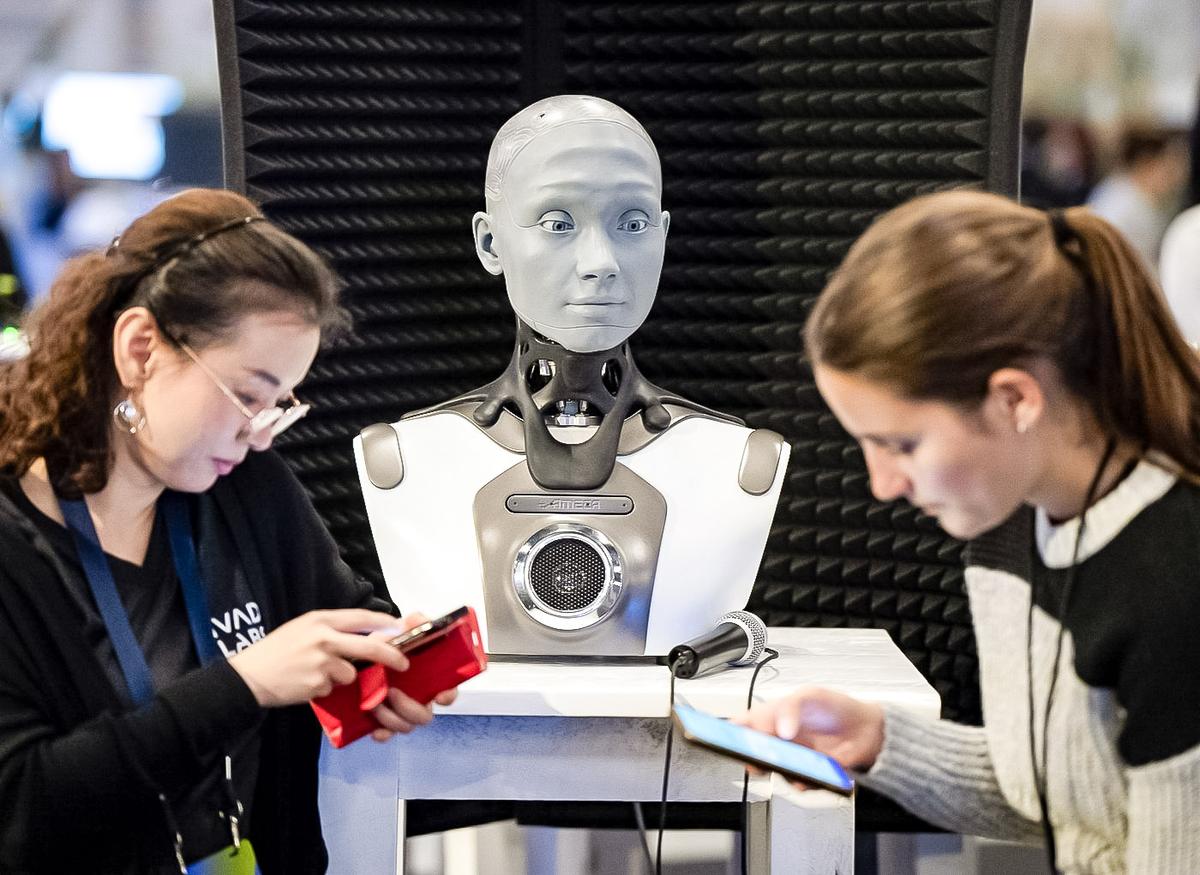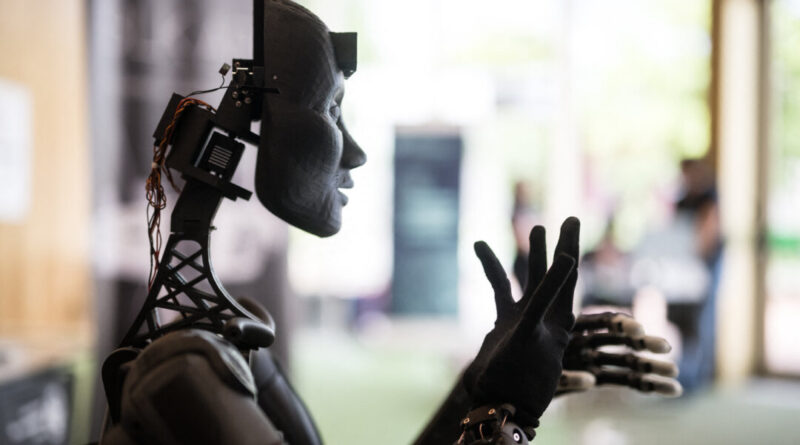Humans Engaged in a Digital Competition Against Robots
It sounds like science fiction, but experts and leaders are now warning bots could be calling the shots on everything from product purchases to elections.
Analysis
If the internet were the real world, it may very well resemble a sci-fi movie where robots have taken over the planet, or at the very least, started living alongside human beings.
A tell-tale sign of this amalgam between the organic and the robotic realms are the absurd, artificial intelligence (AI) generated images popping up on social media accounts.
Some take the form of images that show puppies sleeping in a box in the rain, begging users to share.
Others show children in dire poverty or war zones.
Sometimes, on closer inspection, these “children” have three limbs, six fingers, or two noses—the result of an AI that may store information, but lacks human knowledge of what comprises an actual body.
Then there are AI creations that make no attempt to disguise themselves as homeless puppies or sad children—for example, the “shrimp Jesus” fad.
Images of Jesus Christ spliced in various ways with shrimp started to flood social media, clocking up an astounding number of shares, likes, and comments in what some are now terming “engagement hacking.”
Are Your Social Media Friends Humans or AI Bots?
Namely, an AI creates an image that is intended to either affect people’s emotions, or play on their urge to comment or interact by creating controversy or talking points. These images are commented on by additional AI accounts in what is, essentially, a robot-run forum, populated by and for other robots.
In the case of the shrimp Jesus images, their level of surreal absurdity spur countless “likes” and interactions, boosting the profiles they appear on, and tricking the Facebook algorithm into thinking they are a worthy source of engagement.
The question for people is whether the motive is simply to generate advertising revenue through boosting profiles with such digital wizardry, or whether there may be more at play.
It’s already becoming obvious that some forms of media are catching on to the risk of AI bots.
In the voting for the 2024 Eurovision Song Contest, watchers were asked to vote by submitting a small fee by way of a bank card—a relatively new development in the song contest.
It’s the same concept that belies Elon Musk’s musings over charging a fee to use social media platform X, formerly Twitter.
Bot engagement has become such a threat that many platforms are seeking a way to prove the force behind a computerised process is a human one—and in some cases it’s proving quite a challenge.

Humans Susceptible to Being Influenced: Scientist
Ian Oppermann is the New South Wales government’s chief data scientist and he says the situation is a perfect example of a digital arms race where AI can be both the cause, and the answer to the problem.
He says “likes” are a simple way of people demonstrating interest in a digital space, and most social media assumes likes have come from a human.
Unlike robots, humans are “creatures of the herd,” Mr. Oppermann told The Epoch Times, which makes them susceptible to being manipulated.
That manipulation could influence the purchase of a product, or it might influence the outcome of an election.

More “likes” on a page means it’s likely to be seen by more users, and a highly reviewed product or service will attract more customers—meaning the race is on to secure the attention of humans in the virtual world.
The fact that it can be faked means tech giants may need to start looking at “robot-proofing” likes, by making users tick a box, or selecting images.
“Even these barriers however will eventually be defeated by AI,” Mr. Oppermann said. “This leads to the need to rethink how people can easily show appreciation, or less satisfyingly, can easily tell if a review or series of ‘likes’ is fake.”
AI could, in theory, be developed to detect and remove fake likes, or provide disincentives for using AI boosted algorithms.
A Decade of Research into Online Manipulation
The use of AI in manipulating human beings may be a fresh discussion, but it’s an old science.
In 2012, Facebook conducted a week-long study to test the manipulation of newsfeeds based on human emotions.

Results were published two years later in the Proceedings of the National Academy of Sciences.
The study randomly selected almost 700,000 users and found that altering the algorithm to show users positive or negative posts from their friends resulted in their mood being dictated by the content they were exposed to.
The study ultimately concluded that positive posts were reflected in happier posts by subjects, while exposure to negativity was also reflected with more negativity.
Mr. Oppermann said humans were highly susceptible to “subtle nudges” and that images could be especially influential on people, even more than words.
“Controlling the media and the message has long been used to influence public opinion,” he said.
“Algorithmic manipulation of what people see (or do not see) is a powerful way to influence someone’s world view.
“If it can be highly personalised, then views on any topic or issue can potentially be influenced.”
Spectre of AI Disinformation Around EU Elections
While netizens have been interacting with surreal images on Facebook, real-world implications of that very same technology have caused sleepless nights for experts in Europe.
Voters in the European Union (EU) started electing lawmakers this week, with the threat of online disinformation looming large.

- Representative Keith Self speaks to Newsmax about Normandy jump to pay tribute to D-Day veterans.
- Robert F. Kennedy Jr. Secures Spot on Florida Ballot as Reform Party Candidate





